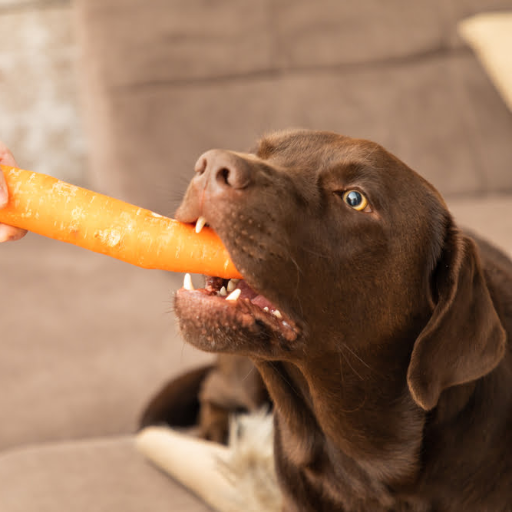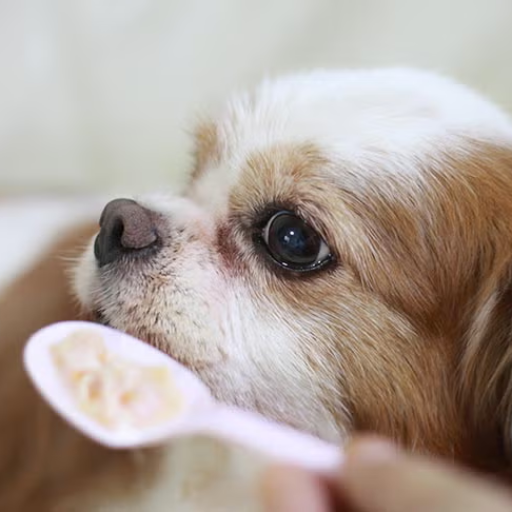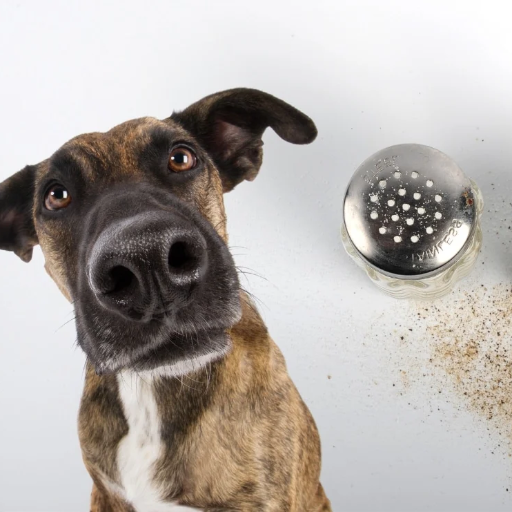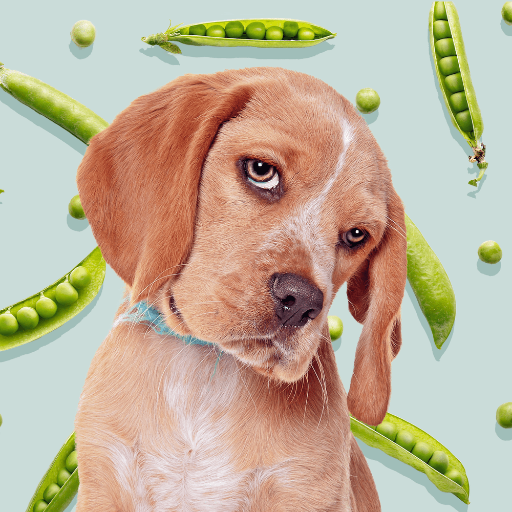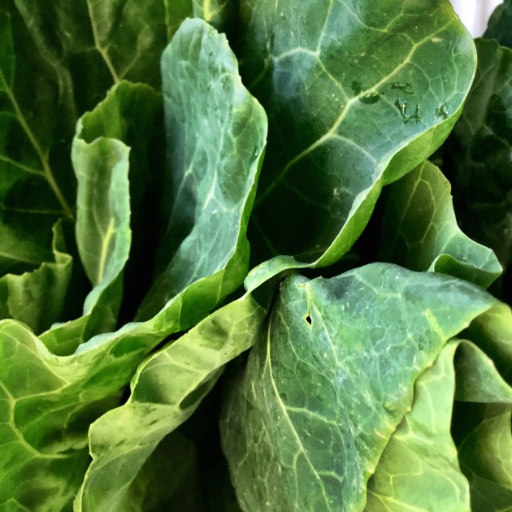Cats are adored by a lot of people and it is quite vital that they are properly taken care of. Food becomes one of the major concerns for cat owners, Cats are believed to have high standards with the meals they consume. Pet parents always have a common question and that is if certain human meals can be safely shared with their pets. A food item which is very common among those that raise questions as to it being okay for cats to consume is peanut butter. In this article we will discuss everything that is relevant to cats and peanut butter, including feeding instructions, care tips, and the essential nutrition and safety factors that should be taken into consideration.
Is Peanut Butter Safe for Cats to Consume?

Knowing What Peanut Butter Contains
Even though peanut butter is not poisonous for cats, it is still safe to say that it should not be in the diet of in any way necessary and many people should consider leaving it out completely. There are a lot of products such as peanut butter that contain sugar, salt, or even artificial sweeteners like xylitol and those are dangerous. Even in its rawest form, peanut butter will always remain to be high in fat, and that can cause some mild digestive disturbances or even weight gain. While I appreciate the sentiment, if you do to use it, begin with praising the cat and offering a thin layer of plain unsweetened Peanut butter, that’s the rule of thumb for a treat but don’t forget to talk with your vet advisor.
Possible Dangers of Giving Peanut Butter to Your Cat
Although peanut butter is not toxic to cats but cats’ owners must keep in mind that feeding them with peanut butter comes with a few risks. The first point of concern would be xylitol which is an artificial sweetener that most people can use without thinking twice but which is a big no for cats since it lowers blood glucose levels and can result in severe liver damage. Moreover, cats do not need a lot of fats and introducing too much peanut butter has the potential to make them overweight or cause them to have pancreatitis. Being humans, we must understand that cats have a different immune system and digestive system for that matter and as a result, if they are given too much peanut butter they will throw up or have diarrhea. Even more so, most cats are lactose intolerant and since peanut butter is made of groundnut, some cats will have allergies when they have it. It is wise to talk to your vet before changing your cat’s diet and if you’re giving them peanut butter try to give them without sugar or salt or any other ingredients.
Cats and Peanut Butter: The Possible Amount of Peanut Butter a Cat Can Consume
When it comes to peanut butter, and how much of it is safe for a cat to consume I would say exercise caution and use as minimal amounts as possible, or better yet use none at all quite simple really. In case you were willing to give a cat peanut butter a portion never larger than a pea, free from xylitol ingredients, and made into a paste I guess it would be appropriate to be fed once in a while, yes. Point is peanut butter has high risk attached to it because first of all it is not even healthy for a cat in the first place plus it can lead to an upset digestive system or even obesity, managers questions. As a recommendation, I would prefer to contact my vet first as I have no idea about my cat’s health and the dietary requirement that is specific to their needs.
What Are the Health Concerns of Cats Eating Peanut Butter?
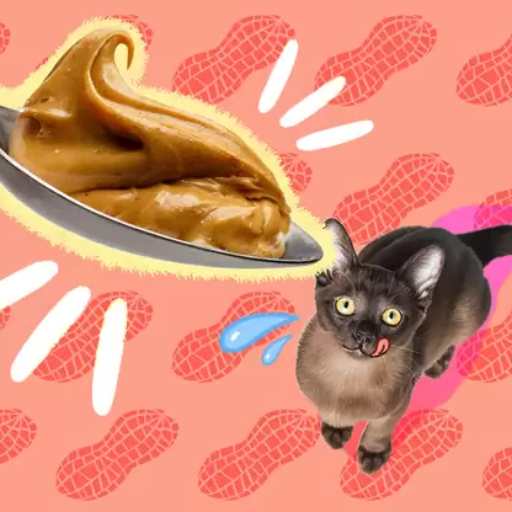
Nutritional Value of Peanut Butter for Cats
As for the cats, peanut butter has a relatively low nutrition value. It does provide slight benefits as it still has some protein and healthy fats but these are offset by absence of a proper nutrition that is required in a cat’s diet. Cats are obligate meat eaters, meaning that they should primarily eat meat. There are also high risks that peanut butter can be harmful due to high fat percentage, use of addition, and making some cats obese and leading to stomach disorders, so it doesn’t seem rational to consider it among the safe foods to be fed to cats.
Possible Gastrointestinal Issues in Cats
Due to the relative composition of peanut butter many cats develop stomach issues if they take peanut butter as part of the diet. If determined that cats find it difficult to digest peanut butter because of its high fat content or any additives present in it, it leads to peanut butter being vomited out, the cats having diarrhea or even pain in the abdomen. Worse still, many additives in peanut butter can lead to cats developing an allergy. The thickness and the sticky nature of peanut butter also makes it hard for many cats to swallow it. For the reasons provided, many cats develop stomach issues and the case is worse for the ones that already suffer from medical conditions.
The Issue with xylitol in some peanut butter brands
According to my research, the primary drawback of feeding cats peanut butter is that the ingredient contains xylitol which is a sugar replacement, I have established that xylitol is potentially lethal for cats and there’s not even a percentage of it that can be conveyed safely as there can be no amount of insulin that is safe for it. Hypoglycemia is a life threatening disease and it can arise instantly in case of an emergency. Furthermore, xylitol is believed to be a cause of liver damage in felines and that’s an added risk I would rather not take. It is hard determining which brands use xylitol however I would prefer not using any peanut butter and it’s best for my cat only to avoid such a situation in the future as it provides no nutritional value.
How Does Peanut Butter Affect a Cat’s Digestive System?
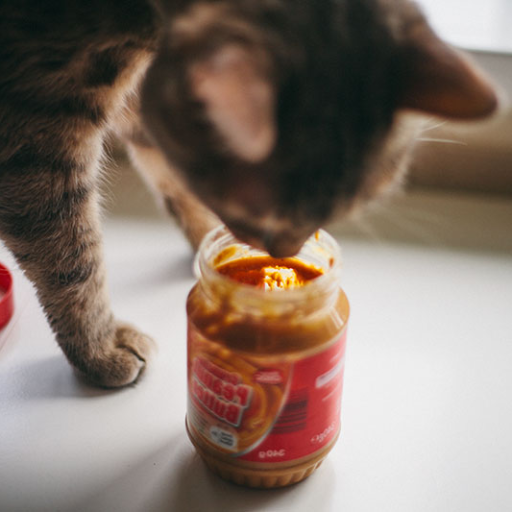
Felines are Strict Meat Eaters: How They Fare with Plants
Felines have an unusual system as they are obligate carnivore which means they consume plant-based food but in very small quantity. Technically, their digestive system allows them to digest meat only. Cats, however, do try to consume plant-based food but do so in limited amount. Peanut butter has a bit of everything plant-based so it can become difficult for cats as it affects their pancreas as well. The mass of trouble greater though, is gastrointestinal distress in cats, which leads to vomiting or diarrhea. Due to abundant fat content in peanut butter, cats can get pancreatitis if it is consumed regularly. All this makes it clear that it is not ideal for tummies and hence should be avoided.
Cat Emesis and Diarrhea Potential
Peanut butter is not really the ideal food product for cats considering how it would affect their digestive system. The usual basis for this statement is that cats are obligate carnivores and their anatomical structure across evolution has been shaped for meat based protein and fat consumption while peanut butter is plant based. Cats do not have the enzymes that are required to break down a plant based diet, even complex carbohydrates. So imagining a combination of a cat with peanut butter is simply out of boundaries as it can cause my cat severe discomfort and lead to vomiting or even diarrhea. Additionally, it has also been highlighted that the amount of fat found in peanut butter is not really good for a cats digestive tract, it could cause great trouble to the pancreas and over consumption could easily lead to pancreatitis. Now considering all of these factors together certainly makes peanut butter an unsuitable food for my cat, regardless of the amount. I simply feel it is appropriate as a decision to keep them healthy.
Are There Any Benefits to Giving Cats Peanut Butter?
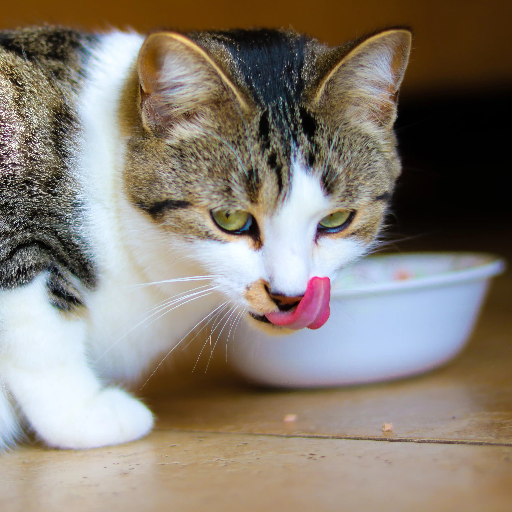
Peanut Butter as a Reward or Cover for Pills
Despite the fact that peanut butter does not have any toxins that can be life-threatening for an animal, its possible use and benefits remain but are still limited. Some pet owners may employ a more moderate approach wherein due to the difficulty of getting a cat to take pills, they would use peanut butter either as a form of reward or as a cover to a pill. The rough consistency together with the strong appeal of the peanut butter might come in handy in this sense. However, even as a treat or disguise, it’s vital to ensure that the peanut butter contains no harmful inclusions including xylitol which is lethal to cats alongside high levels of salt and sugar. All in all medicine cats for example can simply use catdigestive health not all of them are safe and healthy. Do ensure you talk to your vet here comes here this way on which one or none is better.
Peanut Butter vs. Speciality Cat Treats
Considering giving your cat some peanut butter, I cringe at the thought because it presents more risks than advantages. This is because it might sound harmless or creative to use peanut butter as a snack or medication disguise. There are many safer choices; for example, there are pill pockets or cat-specific treats that were designed with the health of the cat in mind. These alternatives avoid the problems of ingredients such as xylitol as well as the risk of digestive upset. To me, being concerned about my cat’s well-being means avoiding risks that are not necessary and this is the reason I prefer to use vet approved options over peanut butter for instance. Also, I have to ask my vet before replacing anything or adding something new to my cat’s diet so I’m sure it’s safe and beneficial.
What Alternatives to Peanut Butter Are Safe for Cats?

Food Products Humans Can Safely Feed to Cats
There are certain human food products, for example, cooked chicken, turkey, or fish, that are safe for cats, as well as tasty. These are ideal protein sources that may also complement your kitty’s diet but only in small quantities. Cats that enjoy plain yogurt can also take it in moderation for its probiotic content – just ensure it doesn’t cause any digestive issues. Garlic, onion, and overly salty foods can be harmful to a cat’s health hence need to be avoided at all times. In case you have any doubts over the safety of offering certain foods to your feline friend, please consult a vet beforehand.
Healthy Commercial Cat Treats
When I look for commercial cat treats and how to get them, I make sure to check them thoroughly, and, in my case, , if they are specifically developed for cats and of good quality. Since I feed my cat fish and meat in its pure forms, I opt for commercial treats that incorporate them into their formulation and avoid those that contain too many chemicals and preservatives. I still remain cautious to the composition and refrain from using a small number of artificial features- fillants, preservatives and by-products. I also look for treats that have added advantages such as improving overall cat health and contains Omega 3 to make the fur thicker and shinier. To be confident that what I am doing is best for my pet, I do not hesitate to ask my vet before introducing them to my pet how you know they will respond. My primary focus remains unchanged, and it is about well-being of my furry friend.
Reference sources
Frequently Asked Questions (FAQs)
Q: Can cats eat peanut butter?
A: Yes, cats can eat peanut butter but only in small amounts. Consistent eating of peanut butter is not recommended to cats. There are several reasons for this, one being that peanut butter is not harmful to cats but it is oily and eats up calories which in excess have a lot of adverse problems. Always opt for cat-specific food designed specifically for cats.
Q: Can cats eat peanut butter and jelly sandwiches?
A: Cats must refrain from eating peanut butter and jelly sandwiches. Even though jelly is not cat friendly, using only a pinch of jelly in the mix won’t be harmful. Likewise, ensure a cat diet should always include cat food. It should never include jelly as it has sugar and other harmful ingredients.
Q: How much peanut butter can I feed my cat?
A: For those who wish to rub a little peanut butter on their cats, make sure to only do that in extremely small portions. A little dab once in awhile, which is less than a pea, should telling pet show us that it is more than enough. Treats shouldn’t make up more than 10 percent of kitty’s energy intake but frankly it’s best to go for non-peanut butter alternatives that are marketed towards cats.
Q: Can cats enjoy peanut butter and what are the benefits?
A: Not much help cats will be getting out of while considering eating peanut butter that they should be eating. Even though the peanut butter contains protein cats are not starving within the tiger generation they are able to get a full cat meal containing all nutrients they need. Therefore no meats, no milk, no peanut butter are all necessary when considering adding to a cat’s meal routine.
Q: What do I do if I want to give my cat a pill and don’t want to have a struggle?
A: Many pet owners have a technique of using peanut butter that is aimed at dogs, but it should not be aimed at cats. Apparently it has been proven that a lot of cats are uninterested in peanut butter so the chances of it working are slim to none. Try reaching out to your vet for some alternative cat friendly methods of giving medication.
Q: Are there types of cat food that have peanut butter in them?
A: There are very few, if any, commercially prepared cat foods containing peanut butter. It is safe to say that cat food is not primarily made with peanut butter because it is not one of the specific nutritional needs that those products rant. Instead, it’s best to stick to pure cat food appropriate food appropriate for cats that should be taught by the veterinarian.
Q: Are there any suitable substitutes that you can give your cat in place of peanut butter?
A: In case if for some reason the feline is allergic to peanut then try giving them little pieces of boiled chicken or a boiled fish that is unsalted or can also use small commercial treats for cats or can try tiny bites taken from things that are safe for cats like small pieces of pumpkin or cantaloupe. Always make sure in the beginning that the food is blended while having it.



